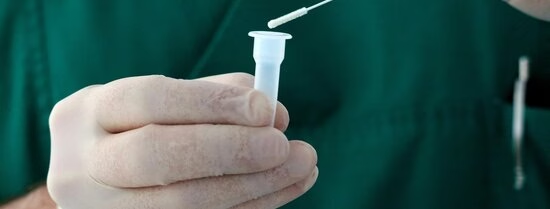To be properly prepared for future large-scale infectious disease outbreaks, Dutch scientists need to better cooperate, both within and beyond their discipline. They also need to share research data with one another more frequently. In a new advisory report, the Royal Netherlands Academy of Arts and Sciences (KNAW, “the Academy”) argues that policymakers and knowledge institutions have an important role to play in making this possible. According to the Academy, by already creating the right conditions right now, scientists can get straight to work if the situation calls for it.
Throughout the COVID-19 pandemic, it was clear how badly science is needed. Doctors had to look for ways to treat the new disease, while the whole of society eagerly awaited the development of new vaccines. At the same time, policymakers sought advice for making increasingly complex decisions and seeking public support. This called for scientific knowledge from many different disciplines.
An Academy advisory committee chaired by Sociology Professor Pearl Dykstra (Erasmus University Rotterdam) identified the lessons the scientific community can learn from the past period. In preparing its advisory report – “With the Knowledge of the Future. Science Well Prepared for Pandemics” [Met de Kennis van straks. De wetenschap goed voorbereid op pandemieën] – the committee conducted interviews with scientists involved in combating the pandemic or advising policymakers; it also carried out an extensive study of relevant literature. Based on this, the report makes recommendations as to what Dutch science needs in the event of a future pandemic in order to provide knowledge that contributes to fighting the outbreak, protecting public health, and preventing harm to society.
The report notes that the pandemic prompted large amounts of new research and publications. In the future, good research collaboration, both within and between disciplines, can help to more effectively coordinate such a large quantity of research and prevent unnecessary duplication. It is also crucial to set-up a digital network for conducting ongoing evidence synthesis, i.e. to pool and assess results from multiple studies.
During the COVID-19 pandemic, moreover, a high-quality infrastructure for sharing and linking (research) data was lacking. In some cases, there was also a reluctance among scientists to share data. As a result, many questions regarding pandemic control remained unanswered. The report states that policymakers and knowledge institutions should work to remove these obstacles.
Finally, the report notes how in the early stages of the pandemic, most emphasis was put on the use of knowledge from a biomedical perspective, whereas knowledge from healthcare professionals, as well as research in the humanities and social sciences and the technical and natural sciences actually proved indispensable for combating the pandemic and developing the complex measures required to do so. In a future pandemic, all available knowledge from the healthcare sector should be included from the very start and scientists from different disciplines should be able to contribute and cooperate with one another.
The Academy argues that by creating the right conditions in the present, relatively calm times, scientists will be able to get straight to work if and when a future situation calls for it.
Click here for more information surrounding this publication and to view the report (Dutch).
Meeting
In connection with the advisory report, the Academy is organising a meeting on 6 December entitled Pandemic Research Preparedness: How do we Prepare Science for the Next Pandemic? For more information and to register, follow this link.
- Professor
- More information
Jeroen Scharroo | Senior communications advisor | Koninklijke Nederlandse Akademie van Wetenschappen
06 1109 5596 | jeroen.scharroo@knaw.nl

